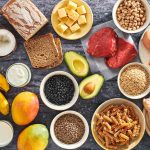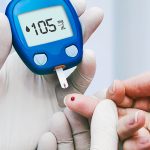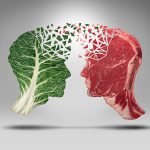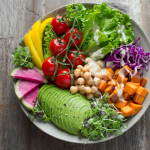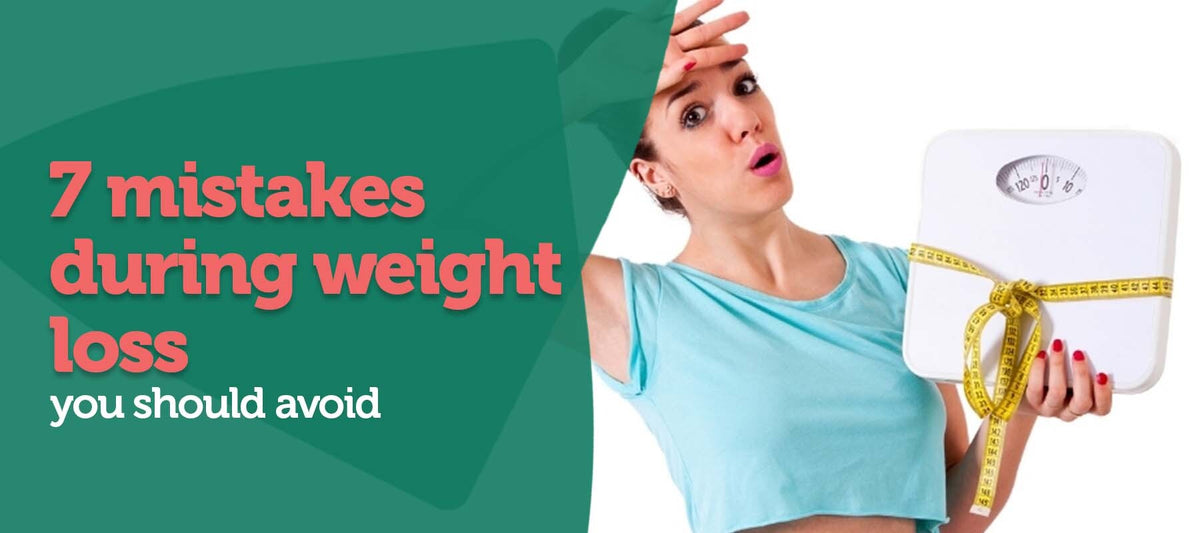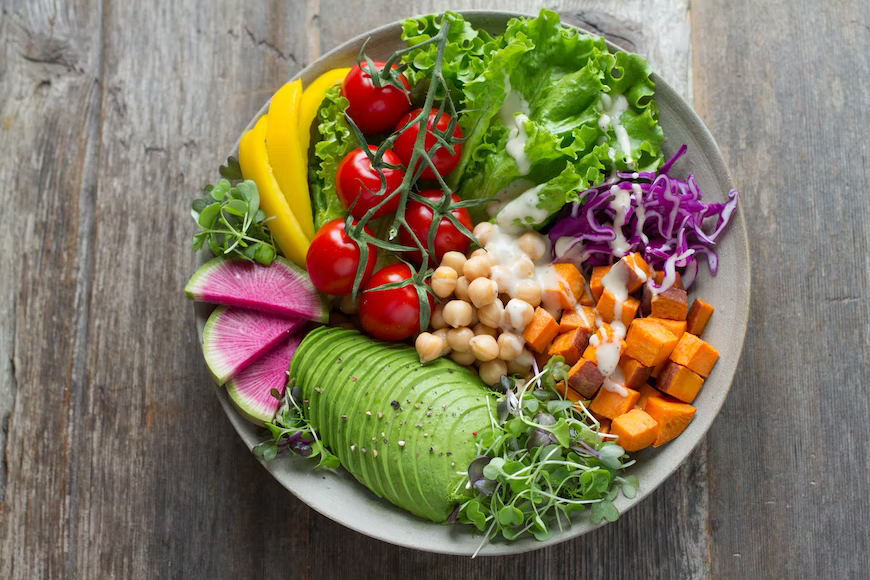
Considering gaining weight to achieve that desired look? You have hit the right stop because we will be sharing secrets to help you achieve that desired healthy weight gain within 4 months or less. If the goal is to do this and remain healthy right, let’s get into it.
Weight gain is a goal that seems so effortless to achieve on the outside but is quite difficult if you want to do it the right way. The goal here is to achieve that healthy weight gain or size with the right foods. Although there are situations where certain pills to gain weight or weight gain supplements can be taken, this has to be done by prescription if being healthy is top of your list of concerns.
The foods we eat affect our body in more ways than just providing nutrients and keeping us alive, a lot of what we eat also determines our weight and body mass, but I guess you already knew that. The human body responds differently to fat generation and subsequent absorption also the difference varies according to different factors but I will be sharing a few key factors you need to know to optimize your weight gain journey.
Uncovering the Factors that Shape Your Weight Gain Journey
Age
Age is an important factor in weight gain because it is a primary determinant of hormonal levels in males and females. What are these hormones which are affected by age which in turn affects fat distribution around the body? You’ll know you in a bit.
These hormones are called testosterone and estrogen. Yes, if they were human names they would be the names of a boy and a girl twin respectively. We’ll dive more into testosterone and estrogen later in the read but it’s fair to note that these hormones ensure that fat is stored in the hips, thighs, and breasts for biological females and in the upper body for biological males.
These hormones decrease as one gets older and hence it becomes more difficult for fats to stay in their respective affinity points, they tend to be distributed all around the body (such as triceps, chin, belly, etc) at older ages.
Gender
Picking off the first point which is “age”, gender affects fat distribution in what we can say is the most significant way. Men naturally tend to have fat distributed across their upper body more significantly than their lower body. This is due to the presence of the testosterone hormone which is more in biological males than biological females.
Testosterone gives males all their manly features like a deep voice, beard, high muscle mass, and so on. In our discussion, it also regulates how fat is distributed in males. Low testosterone levels result in biological males having fat in their thighs and butt and generally unconventional places for men looking to gain weight.
On the other hand, estrogen is the hormone in biological females that give them their feminine look. It is also responsible for fat distribution around the hips, thighs, and breasts in biological females. This fat distribution pattern is a mechanism primarily for preparing the body for childbearing and lactation in biological females. Females with low estrogen levels might lack these fat distributions and show some manly tendencies such as beard growth and deep voice.
Genetics

Genetics plays an important role in the way fat is formed and distributed around the body. This means that you take some of these “fat patterns” from your parents.
Your race and tribe also often affect the way your body weight is predominantly distributed around your body. Your genetics gives a probability of up to 61% heritability of fat distribution and body framework.
Research has shown that Africans tend to have higher subcutaneous fat while Europeans, Chinese, and South Asians tend to have higher visceral fat. In lay terms, subcutaneous fat is the fat that lies just below the skin. It can be pinched together with the skin while visceral fat is the fat that accumulates around the organs in the body.
For more emphasis, subcutaneous fat isn’t easily burned out, it tends to stick around even after exercises while visceral fat is usually burnt via sweat during exercise. So while you try to gain weight also consider your genetics as it will guide you towards achieving your desired result and effectively. give you the right pointers and what to expect.
Food Intake Frequency
The deal here is to eat as many times as possible. This ensures that the body has more calories or energy than it can use up every single time so these excess calories store up in the tissues with the highest propensity to store fat. Eating between 5 – 6 times during the day (or during the most active period of your day) ensures you have enough energy to work and enough energy to build up weight.
The side effect of frequent eating might be reduced physical efficiency of work (normally induced through dizziness, perspiration, and momentary weakness) which is a result of the body working to break down the food.
During digestion, the body releases heat as a by-product of the work done to break down the food, this heat is released as sweat. The dizziness and momentary weakness are most times associated with the body’s natural response to food digestion although it can be attributed to the drop in blood sugar level which occurs after meals. This is also totally normal.
Exercise

Yes, I know it sounds absurd to add exercises as a factor for weight gain. However, if we are looking to gain weight we have to do it the right way. Exercise plays a key part in ultimately gaining weight the right way.
While we do what needs to be done to gain weight we should remember to make sure that we do not do it to the detriment of our health so exercise is the “step down” agent in this process. How does exercise play a part in weight gain?
The food we eat contains calories or simply put “energy.” Our body requires energy to work. Carbohydrates and fats are the main sources of energy for the body but the primary source is carbohydrates. When the body is in a deficit of sugar or carbohydrates it starts making use of the fats for energy and that is how fat is burnt in the body.
Why do we need this information? Visceral fat poses big health risks to the body. However, the good news is that it is easily burnt off. Therefore, it is important to add at least 30 minutes of daily exercise to the weight gain plan to act as a check against health complications. After all, what will be the benefit of gaining weight only to develop health complications?
Lifestyle Matters: How does it impact your weight Gain Journey?
This is an important factor in your weight gain journey. People who live an active lifestyle, especially outdoorsy people tend to gain weight slower than people who live sedentary lifestyles. Physical activities that involve constant muscle movement burns fat which is released mostly as sweat.
People who burn more calories than they consume tend to lose weight if all other factors remain constant. On the other hand, people who consume more calories than they take in tend to gain weight also people who burn off calories equivalent to what they consume tend to maintain their weight if all other factors remain constant. This is the simple formula.
The process of gaining weight can be achieved through various ways, some of which are healthy and safe while we also have ways that are unhealthy and can have serious effects on your quality of life. I’ll be showing you the ultimate guide to gaining weight with the right foods. There are simple hacks and tricks which have been ignored by most people on their weight gain journey and I’ll be sharing them here.
The first rule of weight gain is to eat more calories than you burn out. That being said, we can optimize this rule by strategically working around it and some of the variables to optimize to get desired results are: time, frequency, and exercise. Let’s get into the details.
What are the right foods to eat during a weight gain program?
The general logic behind gaining weight is to take in more calories than you burn off so the objective of choosing the right foods to gain weight with will be to look for high-calorie foods. Three categories of foods stand out in high-calorie weight-adding foods, they are carbohydrates, fats, and proteins.
Carbohydrates
These are the primary calorie source for the body for most people, the sugars contained in the carbohydrates are converted to energy by the body and used to work and the excess is stored in the body. These stored calories are the basis of weight gain.
Weight gain food list in this category includes rice, pasta (sparingly), potatoes, bread (sparingly), and whole grains.
Protein
When looking for high-calorie diets, proteins are a source of high calories with the most nutrient content for the body. We all know protein acts as the building block for growth.
The reason why protein isn’t believed to be the main source of high calories is that it has the tendency of making one full which means you consume less than you would have done with carbohydrates.
The single most important rule in weight gain is to eat more calories than you burn. So being easily full is a disadvantage but for the nutrients that proteins give they should never be ignored. Although it is medically advised that protein consumption be limited to between 1.2g and 1.7g per kg of the body weight and no more than 2.1g of the body weight. You can use our protein intake calculator for more information on your body’s protein needs.
Healthy Fats

This is the single most important food category for gaining weight. Fats make up the highest percentage of calories needed for a successful weight gain program and if you want to know how to add weight fast, this is it, fats are the answer.
They contain a calorie equivalent of 9 per gram against 4 per gram for carbohydrates and proteins. Fats contain calories and they are stored in the body tissues in the presence of carbohydrates. This means that before fats are used as energy for work the calories from carbohydrates have to be used up first.
Fats act as a reserve tank for body fuel so if the body still has calories to use, the calories stored in fats will not be used. The fastest way to activate your fat storage is to fast from carbohydrates and proteins, when the body runs out of calories from these sources it begins to make use of the fat storage. It is advisable to make use of your fat storage at least once a week to mitigate the health risks that come with excess fat storage. Fasting is the way to do that.
Weight gain foods listed in this category include avocados, cheese, almonds (nuts and seeds), olive oil, coconut oil, dark chocolate, and chicken breasts (they contain a good amount of fat but they are primarily protein).
For a comprehensive guide to meal planning, check out our guide on meal planning for weight gain.
Frequently Asked Questions
- What are the most important food categories for gaining weight?
Healthy fats and proteins are the most important food categories for gaining weight. Fats make up a large percentage of the calories needed for a successful weight gain program and provide the body with energy reserve. Proteins are essential for building muscle mass and maintaining overall health.
- Are there any foods I should avoid when trying to gain weight?
While you can still consume high-calorie foods, it is important to avoid junk foods, deep-fried foods, sweetened yogurts, processed wheat, and baked goods such as pastries and doughnuts as they can cause fat to accumulate around the belly and pose health risks for individuals with high blood pressure and diabetes.
- Is it necessary to fast for activating fat storage?
While fasting can activate fat storage, it is not necessary to fast in order to gain weight. Eating a balanced diet with a focus on healthy fats and proteins can help you gain weight and maintain overall health. However, if you do choose to fast, it is important to do so in moderation to mitigate any potential health risks.
Conclusion
The article provides tips on how to gain weight in a healthy way, using the right foods to achieve your desired size and weight. Factors such as age, gender, genetics, and lifestyle all impact the way fat is formed and distributed in the body.
Hormones such as testosterone and estrogen play a role in determining fat distribution, with the former being more prominent in males and the latter in females. Genetics, race, and tribe also affect body weight and fat distribution, with research showing that some populations tend to have higher subcutaneous or visceral fat.
Lifestyle is also a crucial factor, with people who live active lifestyles gaining weight slower than those who live sedentary lifestyles. To gain weight, the first rule is to eat more calories than you burn, and the article provides tips on optimizing your weight gain journey through time, frequency, and exercise.













